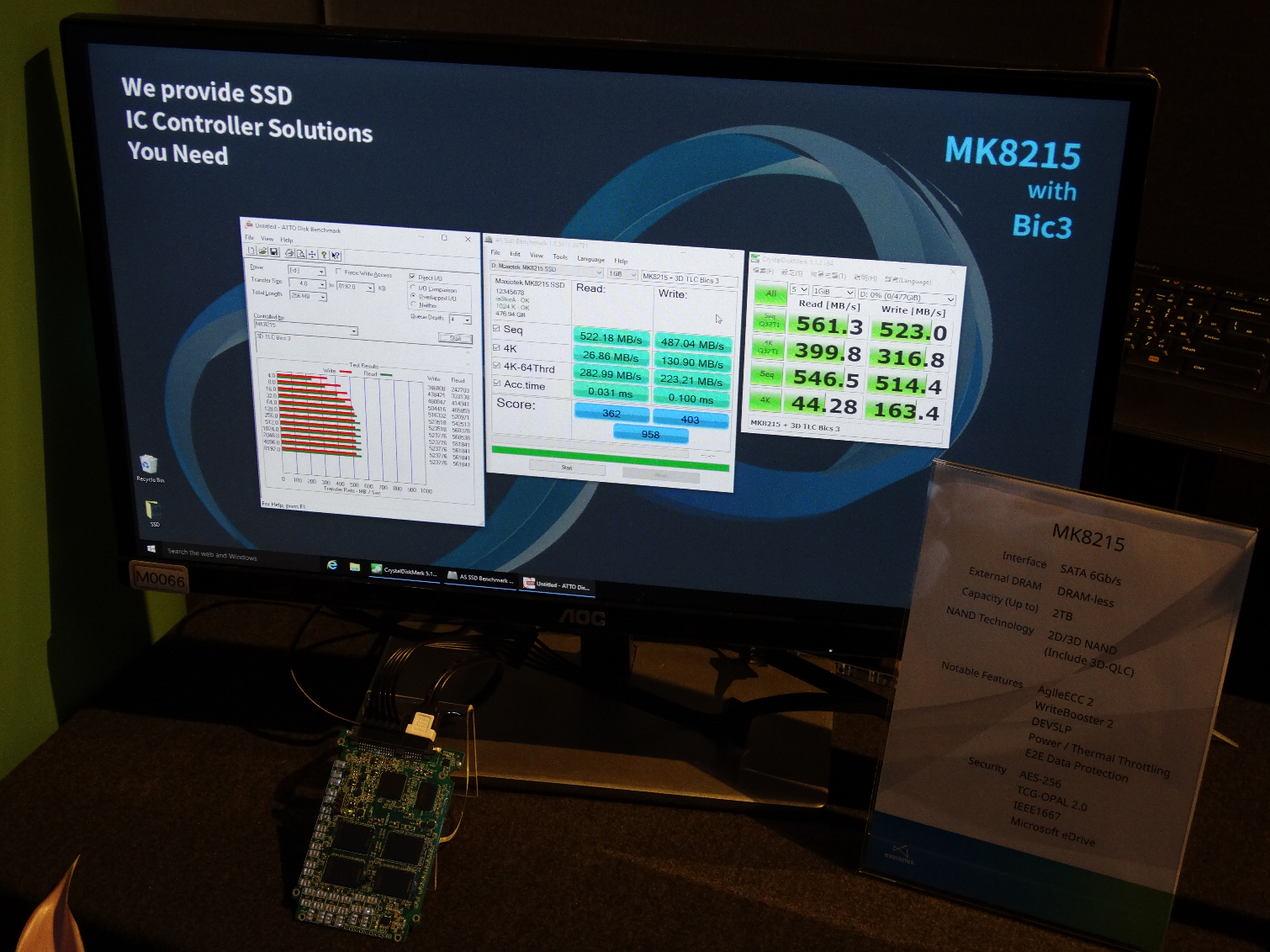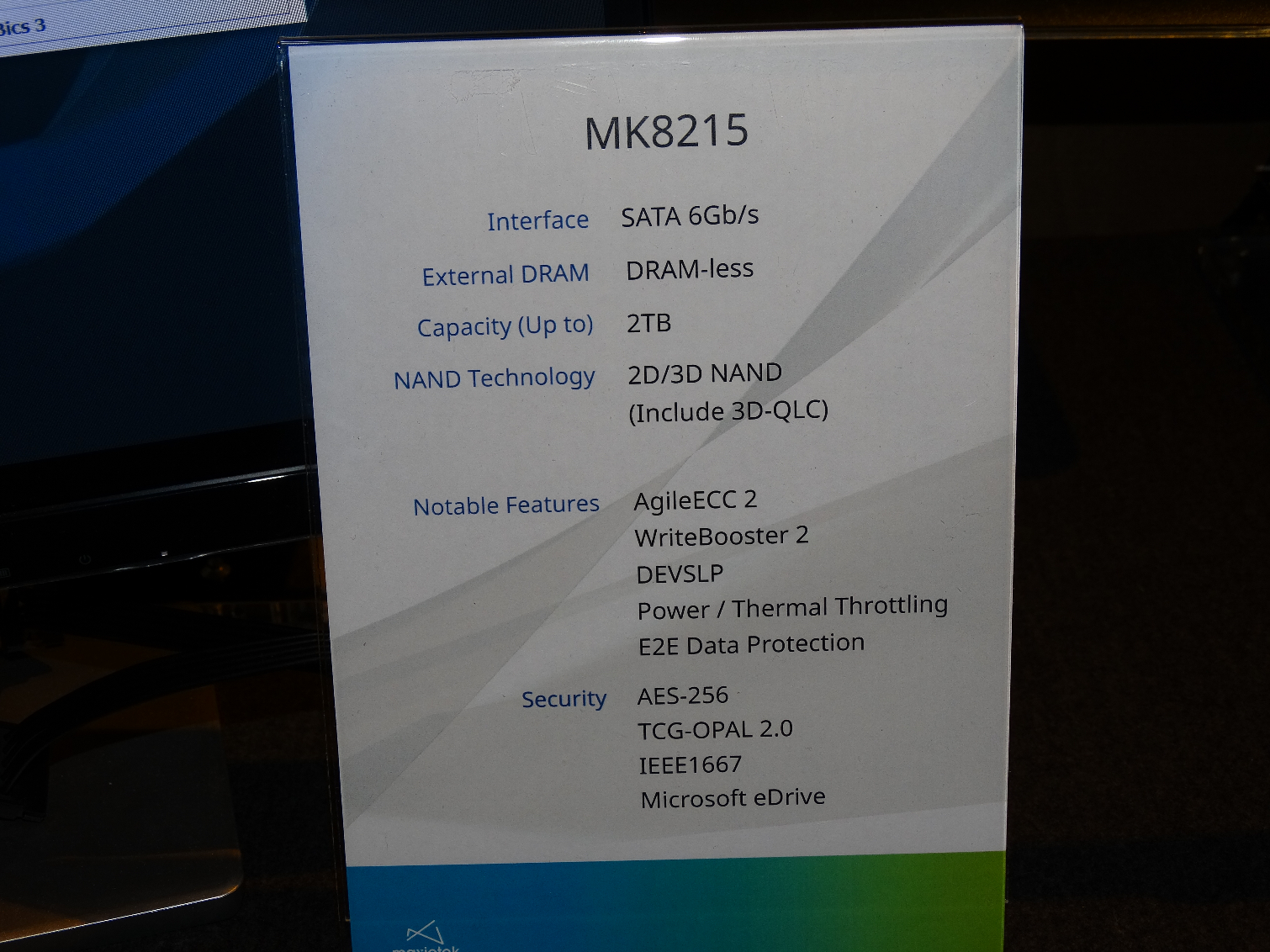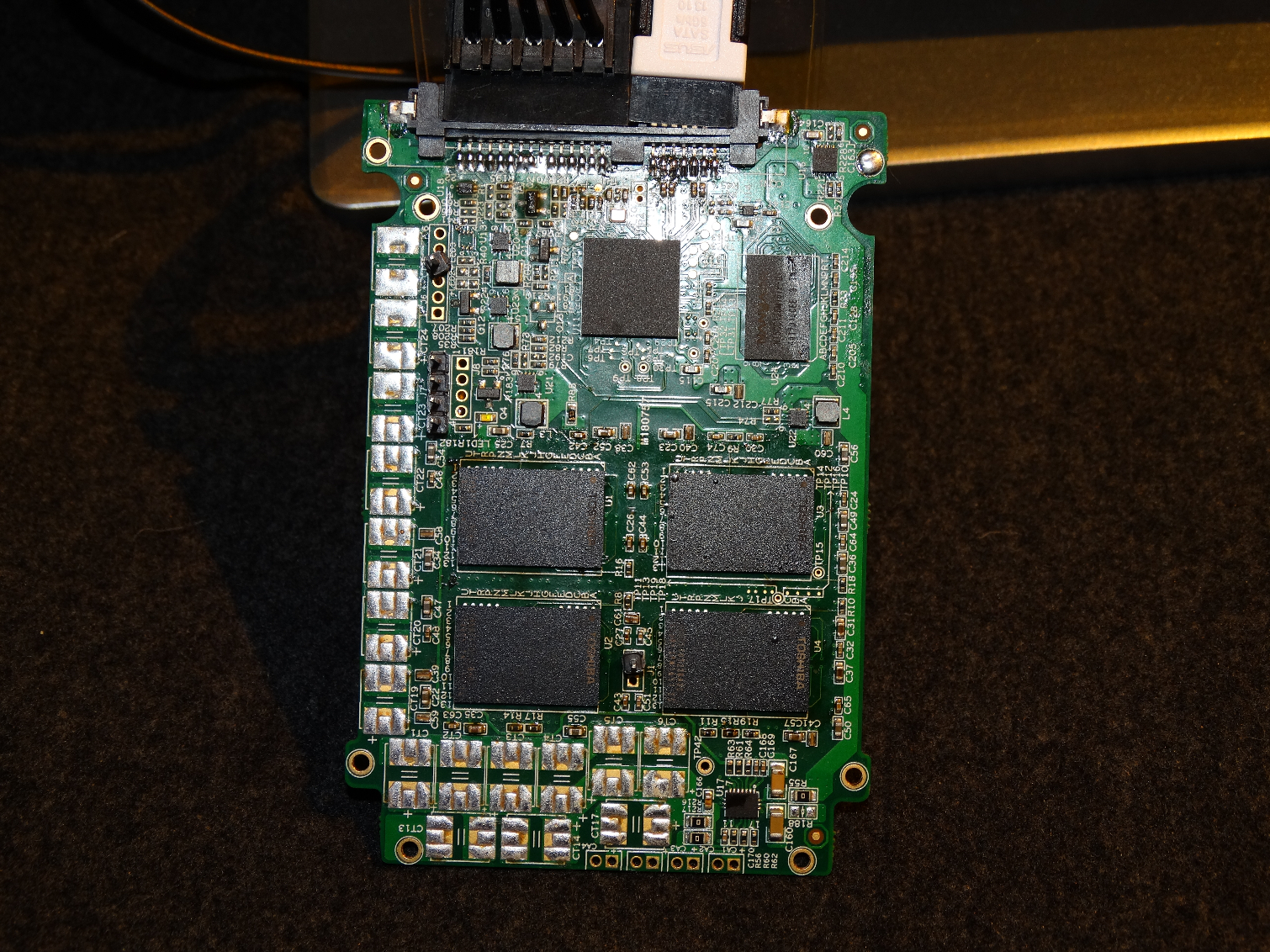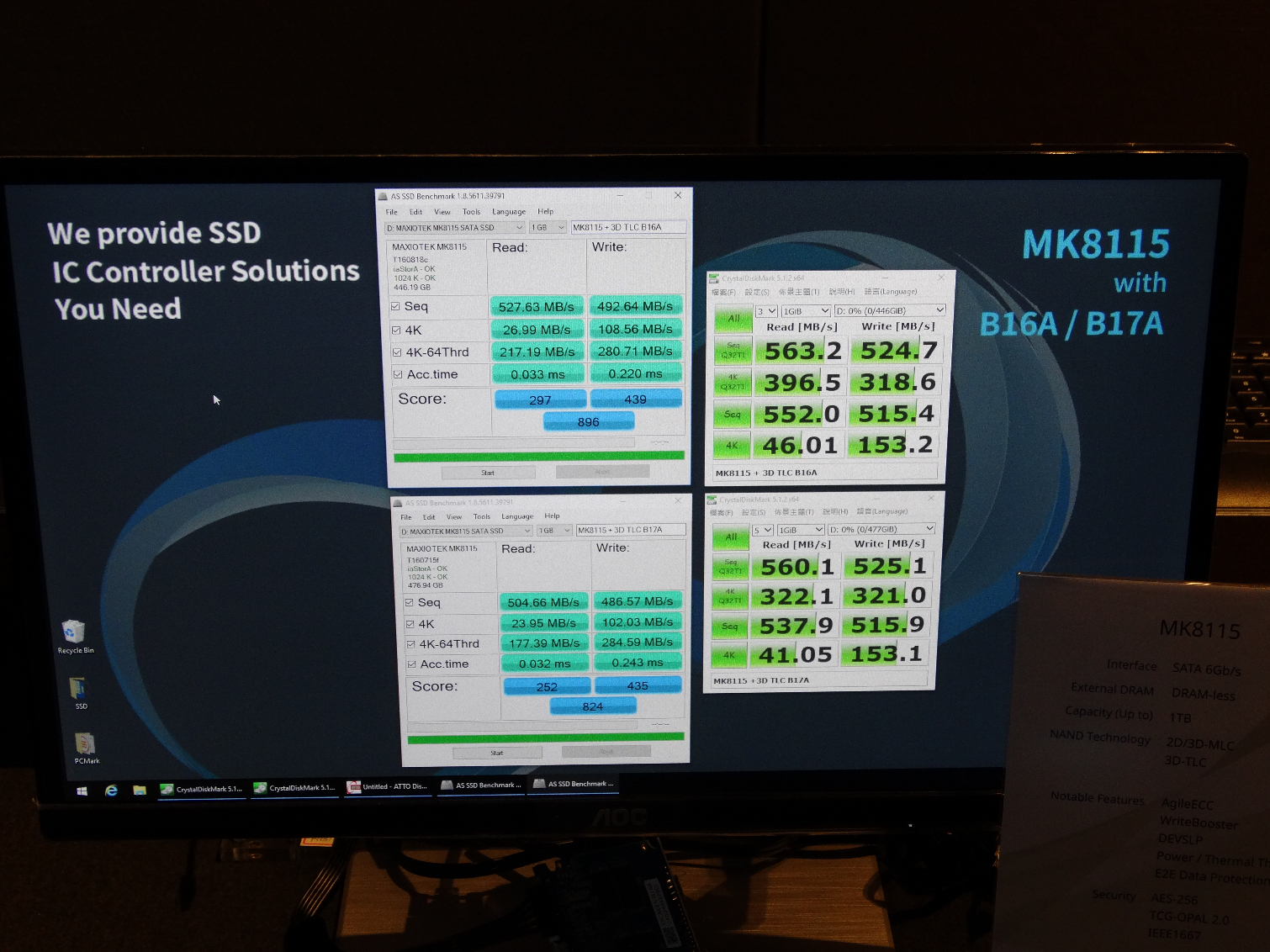Maxiotek MX8215 DRAMless Controller Empowers 3D NAND
Our preview of the Maxiotek MX8115 controller will be out soon, but the fabless design company will not prosper on a single SKU alone. At Computex 2017, Maxiotek displayed a working sample of the upcoming MX8215 DRAMless controller designed to enable 3D NAND in low-cost products. The new MX8215 looks like a viable solution for anyone shopping for long endurance cycles from a very affordable SSD that still delivers ample performance.


DRAMless designs are the new mainstream, and the technology has progressed significantly since we first wrote about it three years ago. Advances in operating system features have also helped, and Windows 10 now supports the ability to use a small portion of system memory to cache the flash translation layer for NVMe DRAMless solutions. The technology doesn't work over SATA, so companies are forced to design more efficient controllers that take advantage of small blocks of SRAM built into the controller architecture.
The reference design MK8215 on display at Computex 2017 shows up to 561 MBps in sequential reads and up to 523 MBps of sequential writes using third generation BiCS FLASH from Toshiba. We should start to see BiCS FLASH in retail products as early as July.
The older MK8115 gets an extension on life with new firmware designed for Micron 3D NAND. We saw a working demo using both B16A and B17A. The performance is nearly identical to the MK8215 using Toshiba BiCS FLASH. The MX8115 controller already has a design win with Adata and currently ships in the Adata SU700 SSD that sells today for as low as $70 for 120GB and $110 for 240GB at Newegg.
Maxiotek tells us several companies have reference designs out to SSD manufacturers for evaluation. We're told to expect power-friendly retail products that will enable long notebook battery life and superior performance compared to exciting DRAMless products currently shipping.
Get Tom's Hardware's best news and in-depth reviews, straight to your inbox.

Chris Ramseyer was a senior contributing editor for Tom's Hardware. He tested and reviewed consumer storage.
-
mavikt I guess the capacitor Intel introduced in order to facilitate write through powerloss isn't needed with these designs either... /sReply

